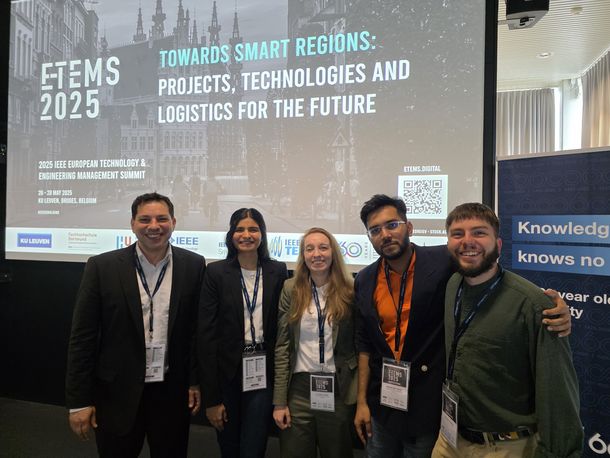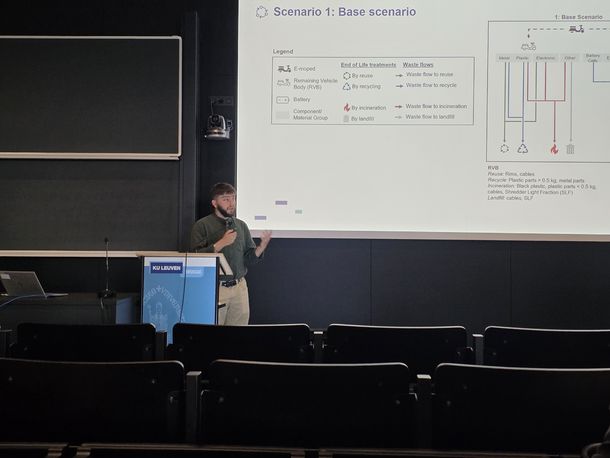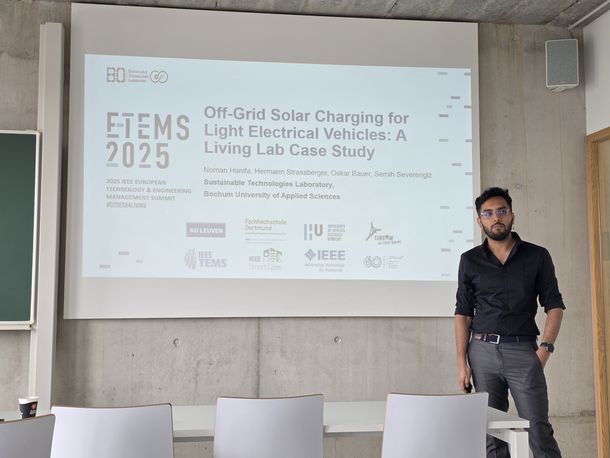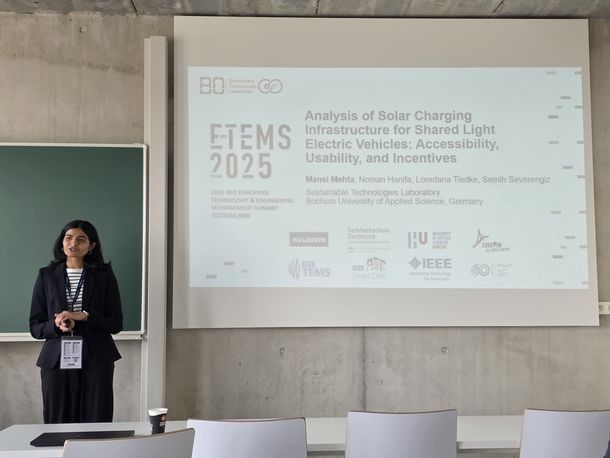Current research on micromobility and circularity
IEEE ETEMS 2025
The Sustainable Technologies Laboratory, headed by Prof. Dr.-Ing. Semih Severengiz, presented its research findings on micromobility and the circular economy at the IEEE European Technology & Engineering Management Summit (ETEMS) 2025 in Bruges, Belgium, on May 27 and 28.

The IEEE ETEMS is an annual European conference where scientific papers in the fields of Technology and Industrial Engineering are presented and published as scientific conference papers. This year's conference took place from May 26-28 in Bruges, Belgium and focused on AI and digital solutions, such as digital twins, in different technological fields. In the context of sustainability, the main focus was on the circularity of various technologies and innovations for and in smart cities.

The Sustainable Technologies Laboratory was able to contribute three conference papers to ETEMS this year. On the first day of the conference, Santiago Eduardo, research associate at the STL since 2024, presented his conference paper “Comparison of End-of-Life Scenarios Under Consideration of Life Cycle Assessment for Light Electric Vehicles”. This paper was produced as part of the BMBF-funded research project Pilot4CircuLEV. The paper presents the need for alternative end-of-life strategies for light electric vehicles, such as e-mopeds, and compares four of these strategies from an environmental perspective. The topic was met with great interest by the participants, so that further questions were asked after the presentation.

The conference papers “Off-Grid Solar Charging for Light Electric Vehicles: A Living Lab Case Study” and “Analysis of Solar Charging Infrastructure of Shared Light Electric Vehicles: Accessibility, Usability, and Incentives” were presented on the second day of the conference by Noman Hanifa and Mansi Mehta - both research associates of the STL since 2023 and 2024 respectively - in the thematic block “Developing Smart Regions”. Both papers were written as part of the BMBF-funded research project “Smart City Sustainable Mobility II” (SCiSusMob II). In this project, a real-world laboratory was set up in Oberhausen and Essen West with Energieversorgung Oberhausen, its former e-moped rental service EVOSharing and the company Suncrafter. The laboratory investigated the impact that alternative charging infrastructure in the form of solar charging stations can have on shared micromobility and whether users of sharing providers use them. Noman's presentation focused on the development of this real-world laboratory and showed how alternative charging infrastructure can have a positive impact on the sustainability of shared micromobility.

Following on from this, Mansi presented results from user surveys conducted with EVOSharing customers on the satisfaction and importance of various aspects of the solar charging station tested in the real-world laboratory. For example, it was examined which safety-related requirements must be met for sharing users to use a solar charging station, but also which additional amenities - such as free WiFi, toilets or drinks and snack vending machines - could make it even more attractive. Both presentations stimulated various discussions with other conference participants afterwards, which confirmed the importance of this research.
The papers will be published in the IEEE Xplore shortly.

